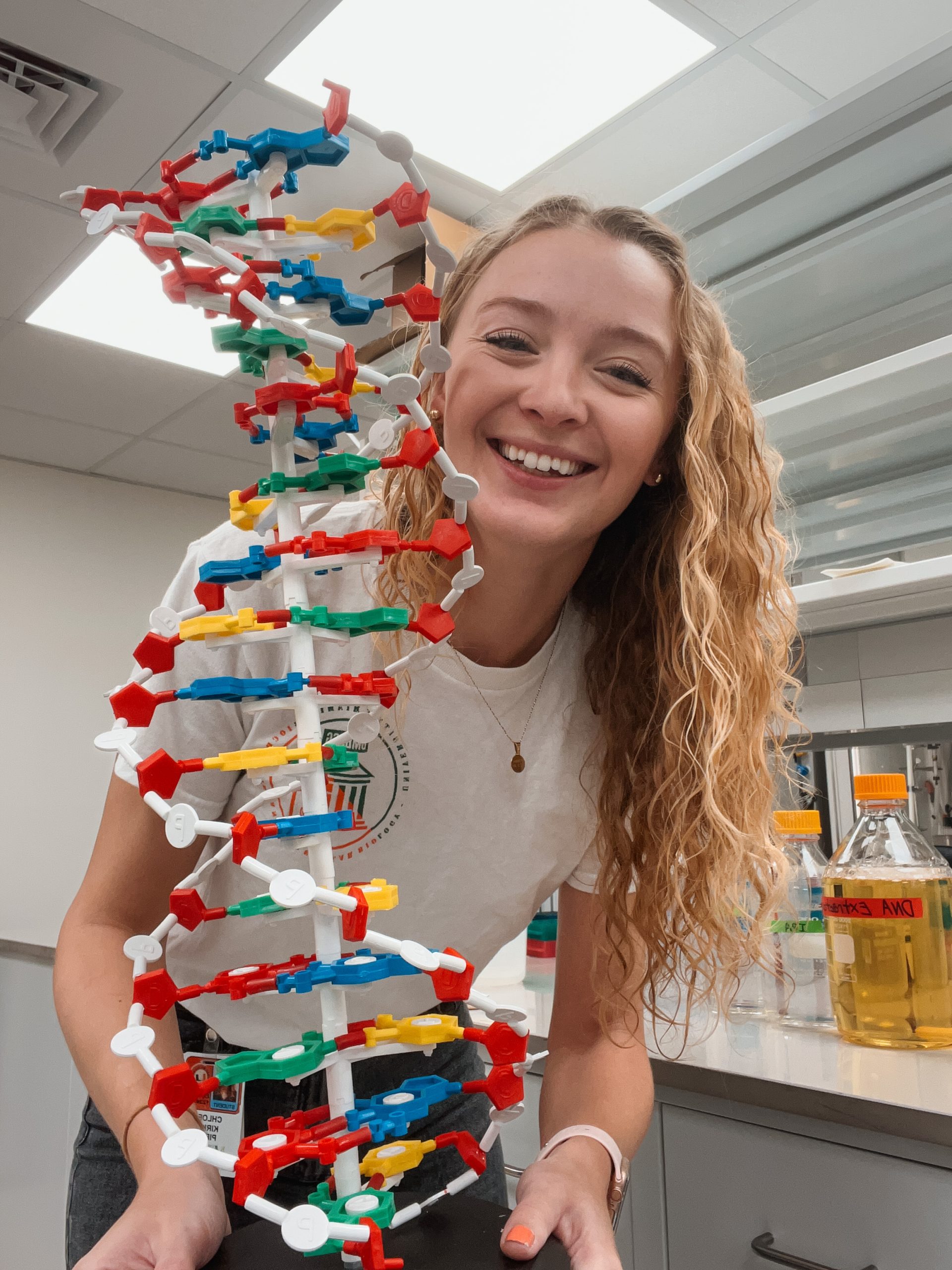Celebrated scientist Issac Newton once said, “To myself, I am only a child playing on the beach, while vast oceans of truth lie undiscovered before me.”
Scientific research is very broad, encompassing many areas of life. While we might have studied what is known about science out of a textbook in high school, that is just a sliver of everything in science out there to uncover.
Chloe Kirk is a young science enthusiast willing to explore the undiscovered. A PhD candidate in the Biochemistry and Molecular Biology program at the University of Miami, she is aiming to revolutionize cancer and neurological disorders research with her work on amyloid-forming proteins.
The type of amyloid Chloe studies, Amyloid-bodies, are not a very prominent part of your classic biology teachings. Even Chloe confesses that she had not heard about Amyloid-bodies before starting her PhD research. Four years into her research, she describes them as groups of folded proteins that appear in the center of our cells when they become stressed and induce a type of cellular dormancy where cells are no longer actively dividing.
When she talks about cell stress, the conditions she uses are typically heat shock and acidosis (low pH). Acidosis is a marker of cell stress seen often in the tumor microenvironment of cancers. In cancer, the lab sees Amyloid-bodies accumulate in cancerous cells that have stopped actively dividing, and then as these Amyloid-bodies dissolve, the cancer cells begin to grow again.
The fact cells can dissolve these amyloids suggests that the body is equipped with mechanisms to dissolve other amyloids, like the ones seen in neurological diseases. Amyloids are implicated to cause neurodegenerative diseases such as Parkinson’s and Alzheimer’s, with the buildup of amyloid-forming proteins in the brain.
Research in this field primarily focuses on prevention of the amyloids forming, but the lab’s work showing reversible amyloids in cancerous cells could shed light on how to revert these amyloids in neurodegenerative diseases as well.
This mechanistic work into how the cell can dissolve or revert amyloids can help researchers to revert other amyloids implicated in diseases like Alzheimer’s disease.
Science is an ever-growing field and Chloe Kirk enjoys being at the cutting edge of research. Want to learn more? You can follow Chloe on her Instagram blog for a day-to-day look at her research progress.












